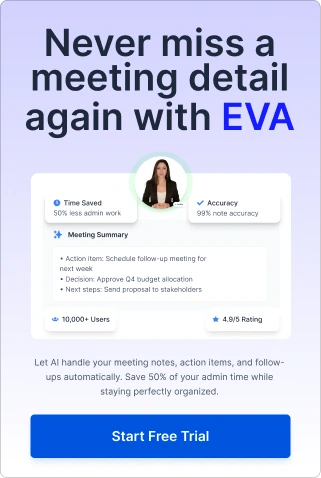Table of Contents
Spread the Word
Work From Home has redefined the traditional workday, trading office commutes and cubicle chats for flexible Zoom calls and cozy home setups. But with this freedom comes the challenge of staying focused amidst distractions like Netflix or noisy neighbors. In 2025, the right Work From Home Apps for Productivity make all the difference, helping remote professionals stay organized, connected, and productive.
We’ve handpicked the 15 best work-from-home apps for 2025, rigorously tested and loved by remote workers worldwide, to empower you to thrive in your virtual workspace.
Why Do People Choose Remote Work?
Remote work is more than a passing trend—it’s a global shift in how we work and live. The World Economic Forum reports that 98% of employees want to continue working from home long-term, driven by flexibility and autonomy. Despite 70% of employers eyeing stricter office policies, hybrid job postings have soared from 9% to 23% in a year, reflecting a growing embrace of flexible models.
Studies show 62% of workers are more productive at home, thanks to fewer interruptions and tailored schedules. With tools like Eva by Paradiso AI, remote workers gain the structure and support needed to excel while balancing work and life.
How Did We Choose the Best Work From Home Apps?
Navigating the Work From Home Apps for Productivity tools can be overwhelming, so we took a practical approach to curate this 2025 list. We focused on apps that tackle real remote work challenges, prioritizing:
- Ease of Use: Intuitive interfaces that save time.
- Remote-Specific Features: Tools for meetings, collaboration, time tracking, and organization.
- Integration: Seamless connectivity with your existing tech stack.
- Team Collaboration: Apps that bridge distances for distributed teams.
- Value for Money: Free and paid options offering real impact.
- User Feedback: Insights from real users to ensure reliability.
Each Work From Home Apps for Productivity was categorized to address specific remote work needs, from communication to task management.
Best Work From Home Apps for Productivity → Eva by Paradiso AI
Eva by Paradiso AI is the top Work From Home Apps for Productivity for 2025, seamlessly integrating with Microsoft Teams to deliver AI-powered meeting notes, transcriptions, and action item tracking. Eva ensures you stay focused during meetings while handling the details, making it an essential tool for remote professionals.

Why Do We Love Eva?
- Real-Time Transcriptions: Captures conversations with speaker identification across Teams, Zoom, and Google Meet.
- Automated Summaries: Generates concise meeting takeaways and key decisions instantly.
- Action Item Detection: Automatically identifies and assigns tasks with deadlines.
- Multilingual Support: Transcribes in multiple languages for global teams.
- Microsoft Teams Integration: Works natively in Teams, syncing notes and tasks effortlessly.
- Enterprise-Grade Security: SOC 2 Type II, GDPR compliant, with bank-level encryption.

Pricing
Best For Time Tracking → Toggl Track, PomoFocus
Time tracking apps help remote workers stay disciplined, offering clarity on how time is spent and fostering team accountability.
#2 Toggl Track
Toggl Track is a go-to choice for freelancers and teams, offering flexible timers and detailed reports to help optimize productivity.
Why Do We Love Toggl Track?
- Available across web, mobile, desktop, and browser extensions.
- Categorizes time by project, client, or task for easy billing.
- Visual insights to spot inefficiencies.
- Integrates with Asana, Trello, and Google Calendar.
Limitations
- No native invoicing.
- Advanced team features require a paid plan.
Pricing
#3 PomoFocus
PomoFocus uses the Pomodoro technique to boost focus with timed work sessions and breaks.
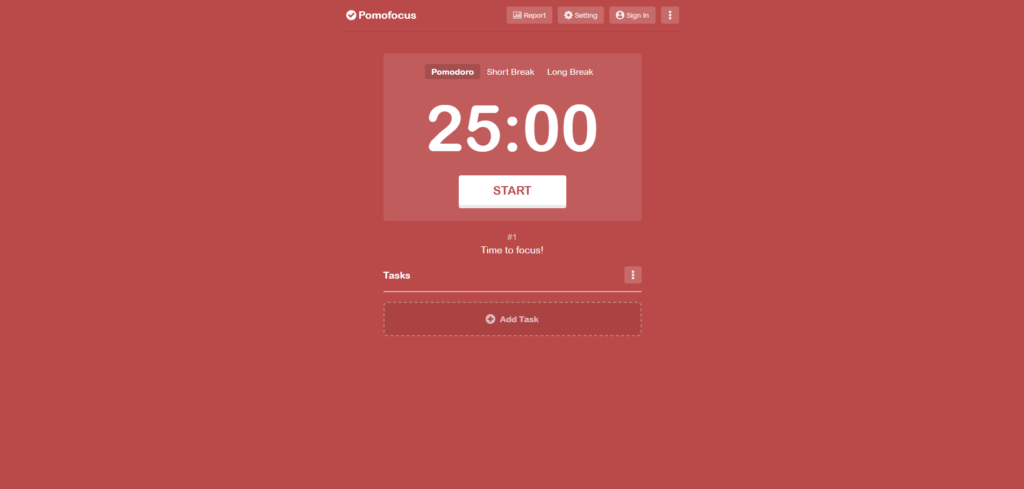
Why Do We Love PomoFocus?
- Customizable work/break intervals.
- Task tracking with completion check-offs.
- Sound alerts for session transitions.
Limitations
- No team features or app integrations.
- Browser-based, requiring internet access.
Pricing
Free basic plan; premium unlocks advanced features. Check PomoFocus Pricing
Best For Video Conferencing → Zoom, Google Meet, Microsoft Teams
Video conferencing apps are essential for connecting remote teams, facilitating real-time collaboration and informed decision-making.
#4 Zoom
Zoom’s reliability and ease of use make it a staple for virtual meetings and webinars.
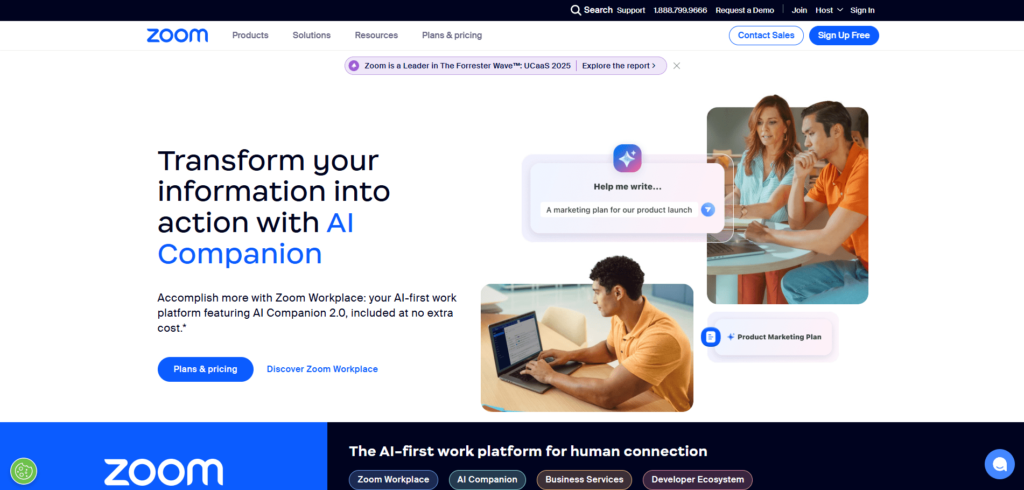
Why Do We Love Zoom?
- Simple join-by-link access.
- Stable video/audio on weaker connections.
- Features like screen sharing and breakout rooms.
Limitations
- No team features or app integrations.
- Browser-based, requiring internet access.
Pricing
#5 Google Meet
Google Meet offers browser-based convenience and seamless integration with Google Workspace.
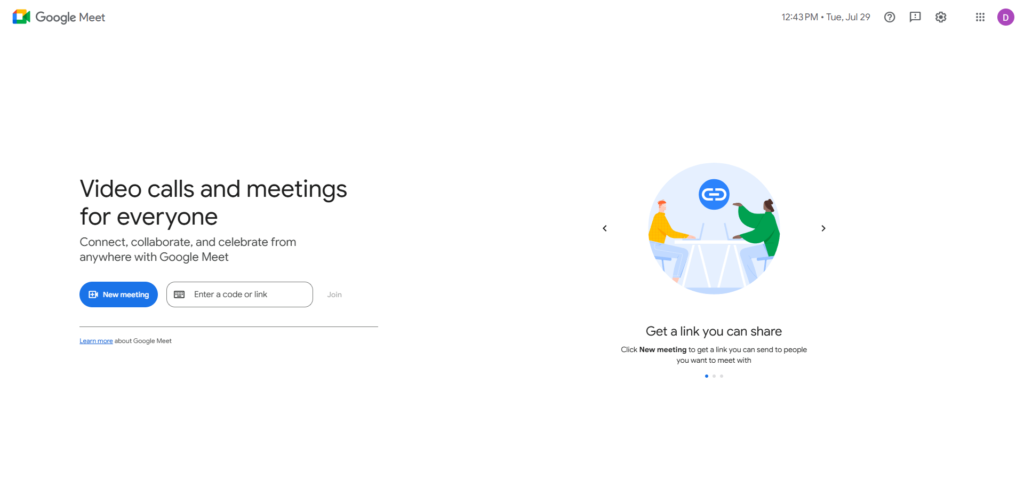
Why Do We Love Google Meet?
- No downloads needed; works in browsers.
- Live captions and noise cancellation.
- Supports up to 250 participants.
Limitations
- The free plan caps group calls at 60 minutes.
- Limited whiteboarding features.
Pricing
#6 Microsoft Teams
Microsoft Teams combines meetings, chat, and file sharing with robust security.
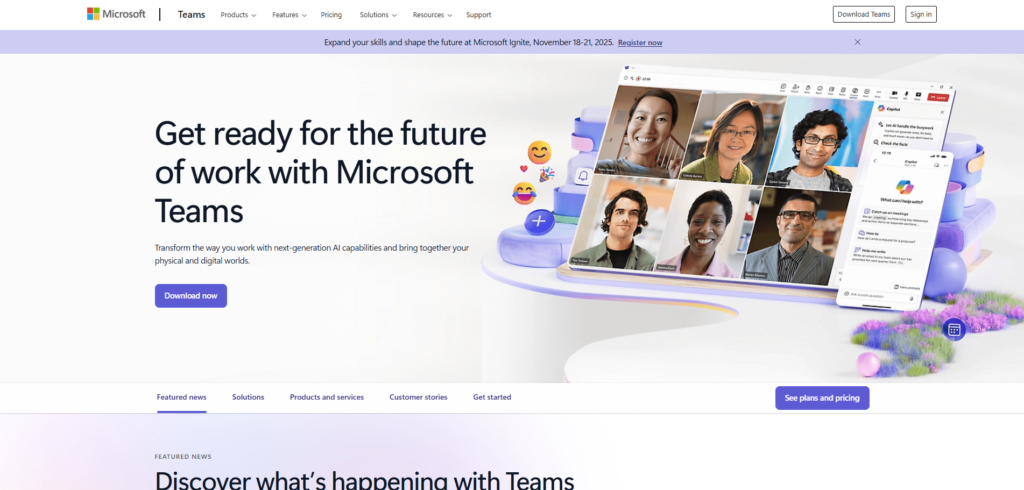
Why Do We Love Microsoft Teams?
- All-in-one platform for collaboration.
- High-quality video with transcriptions.
- GDPR and HIPAA-compliant security.
Limitations
- Complex guest user setup.
- Resource-heavy on older devices.
Pricing
Best For Video Conferencing → Zoom, Google Meet, Microsoft Teams
Collaboration apps keep remote teams aligned, reducing email clutter and streamlining workflows.
#7 Slack
Slack’s channel-based communication integrates with tools like Eva for enhanced productivity.
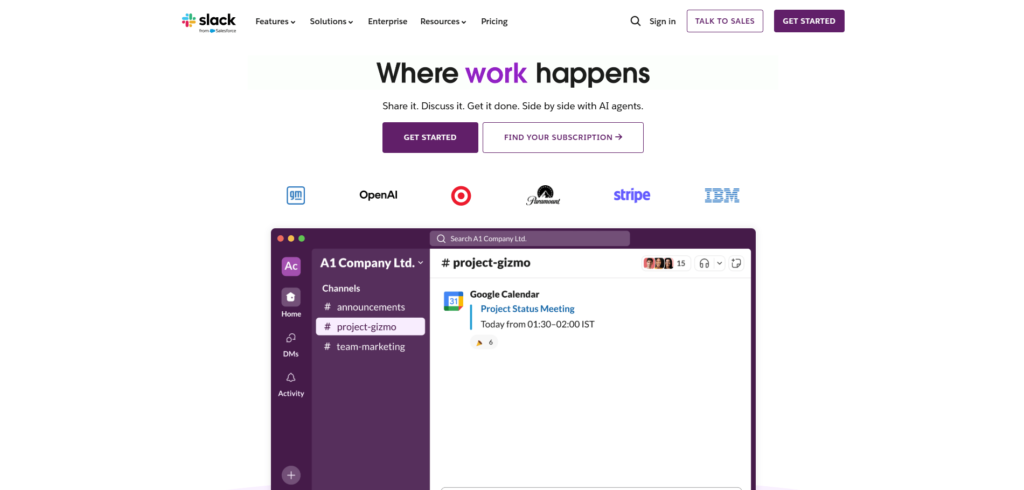
Why Do We Love Slack?
- Organized project and topic channels.
- Real-time messaging and voice “Huddles.”
- Robust search for past conversations.
Limitations
- Free plan limits message history to 90 days.
- File storage constraints without upgrades.
Pricing
#8 Discord
Discord’s servers and voice channels foster dynamic team and community collaboration.

Why Do We Love Discord?
- Topic-specific channels for organized chats.
- Instant voice/video calls and screen sharing.
- Custom bots for automation.
Limitations
- 25MB file upload limit on the free plan.
- Initial learning curve for new users.
Pricing
#9 Twist
Twist promotes asynchronous communication for focused, distraction-free teamwork.
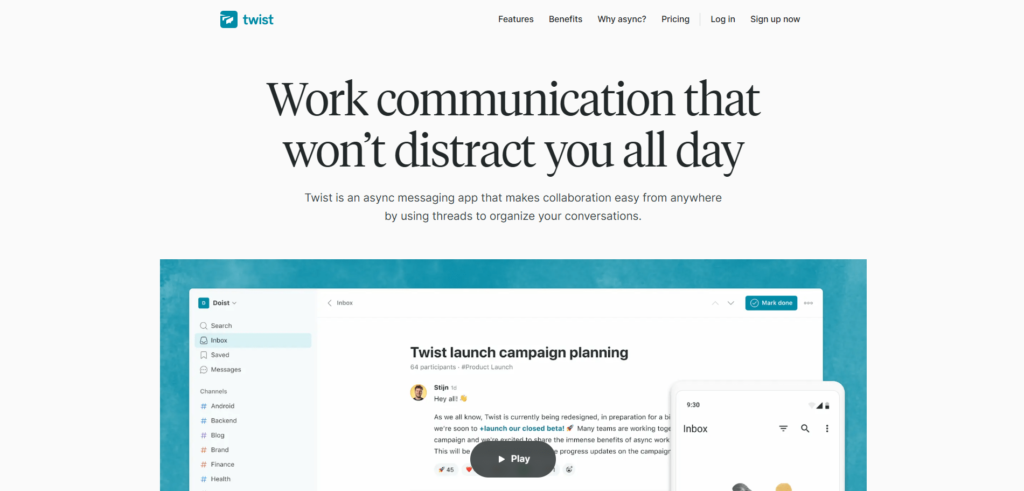
Why Do We Love Twist?
- Thread-based discussions for clarity.
- No pressure for instant replies.
- Cross-platform accessibility.
Limitations
- No built-in calling features.
- Fewer integrations than Slack.
Pricing
Best for Note Taking → Notion, Evernote
Note-taking apps centralize ideas and tasks, keeping remote workers organized.
#10 Notion
Notion’s versatile workspace combines notes, databases, and project management.
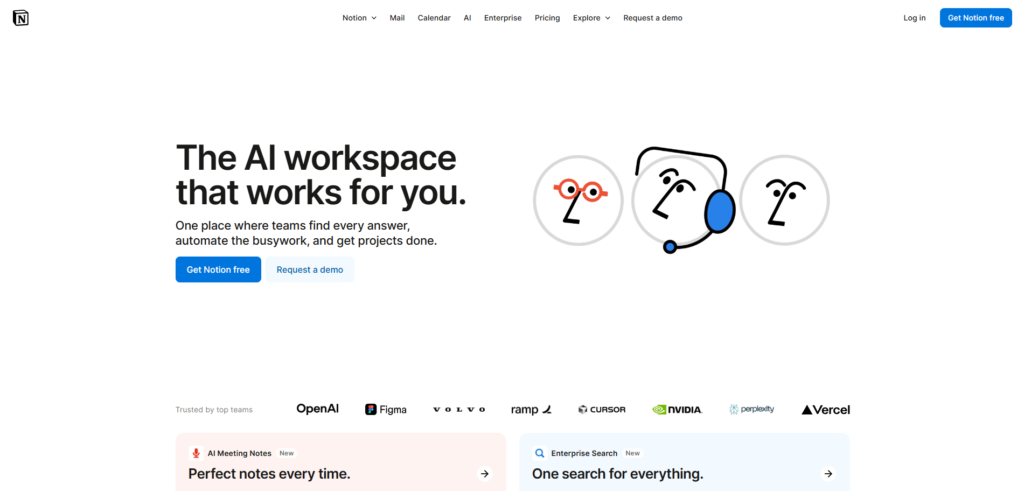
Why Do We Love Notion?
- Customizable notes, to-do lists, and databases.
- Real-time team collaboration.
- Notion AI for content summarization.
Limitations
- Slows with heavy databases.
- No full end-to-end encryption.
Pricing
#11 Evernote
Evernote’s powerful search and syncing make it a reliable note-taking solution.
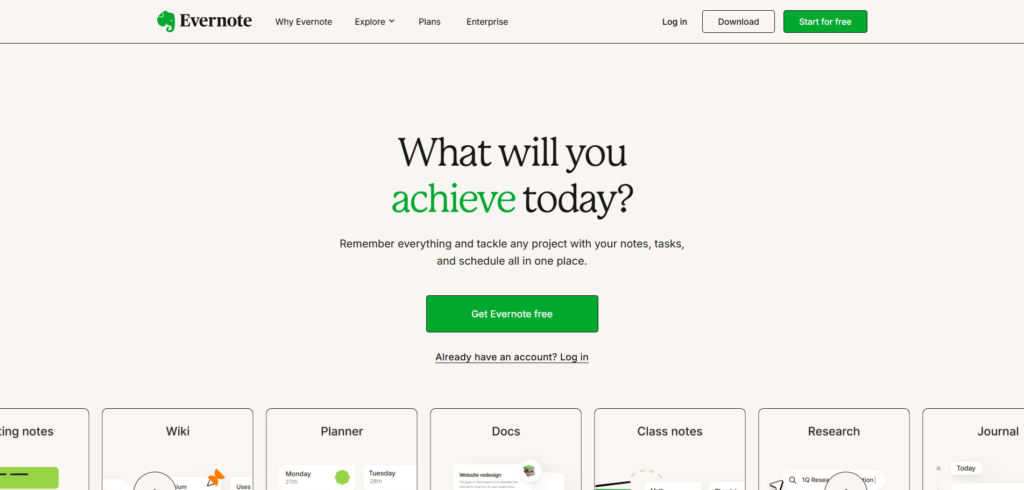
Why Do We Love Evernote?
- OCR search for text in images/PDFs.
- Web Clipper for saving online content.
- Multi-device syncing.
Limitations
- Offline access requires paid plans.
- Higher cost for basic features.
Pricing
Best for File Sharing → Google Drive, OneDrive
File-sharing apps enable secure, accessible collaboration for remote teams.
#12 Google Drive
Google Drive’s integration with Google Workspace simplifies real-time file collaboration.
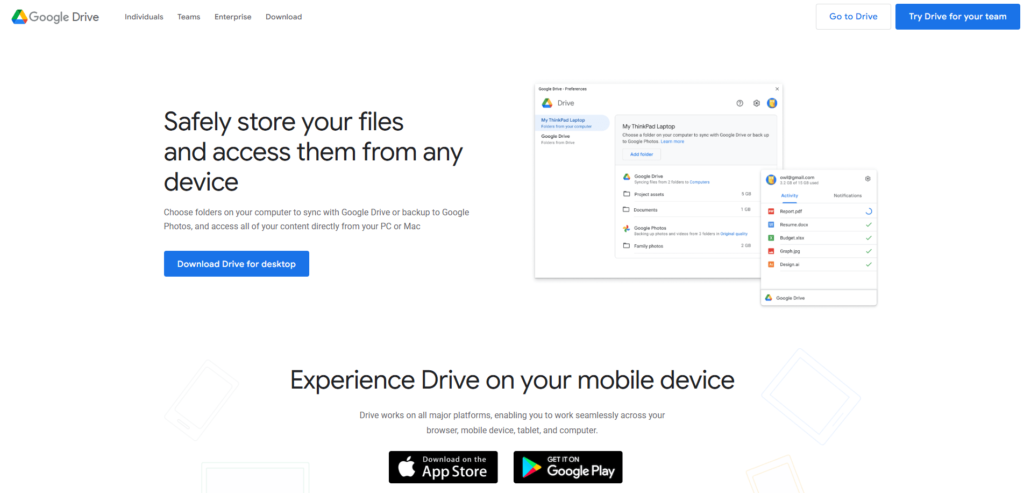
Why Do We Love Google Drive?
- 15GB free storage with flexible permissions.
- Real-time editing in Docs, Sheets, Slides.
- AI-powered file search.
Limitations
- Real-time collaboration needs the internet.
- Limited non-Google integrations.
Pricing
#13 OneDrive
OneDrive’s Microsoft integration and security make it ideal for Office users.
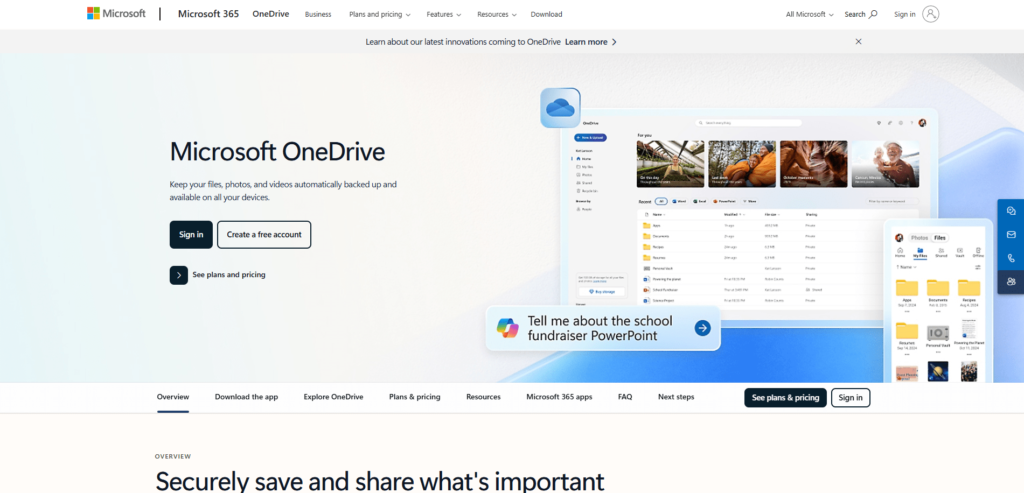
Why Do We Love OneDrive?
- Seamless Office app integration.
- File versioning and malware protection.
- Offline access with syncing
Limitations
- Fewer third-party integrations.
- Privacy concerns cloud storage.
Pricing
Best for Task & Project Management → Asana
Task management tools keep remote teams on track with clear workflows.
#14 Asana
Asana’s intuitive design and integrations streamline project management.

Why Do We Love Asana?
- Flexible project views (List, Kanban, Gantt).
- 200+ integrations, including Eva.
- AI Studio for smart workflows.
Limitations
- No native time tracking.
- Premium plans are required for advanced features.
Pricing
Best for Goal Tracking → Habitica
Goal tracking apps motivate remote workers with engaging systems.
#15 Habitica
Habitica gamifies productivity, turning tasks into a fun RPG.
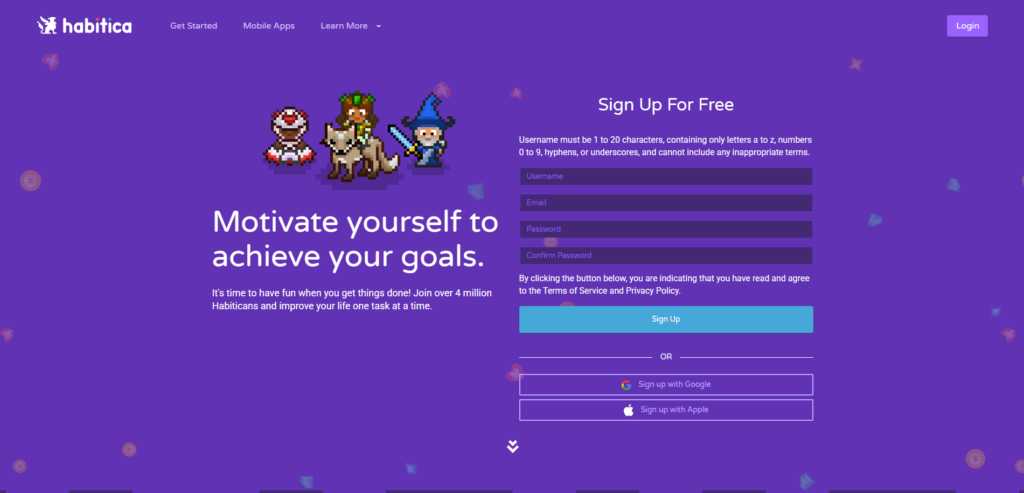
Why Do We Love Habitica?
- Earn XP and rewards for tasks.
- Team quests for accountability.
- Customizable tasks and rewards.
Limitations
- Limited analytics.
- Caution is needed in public groups.
Pricing
- Explore Paradiso Solutions for Cutting-Edge eLearning Solutions
Visit Paradiso Solutions - Unlock Smarter Learning with CogniSpark AI-Powered Authoring Tool
CogniSpark
FAQs
Eva by Paradiso AI excels with AI-driven transcriptions, summaries, and Teams integration, perfect for remote meeting efficiency.
Create a dedicated workspace, use tools like Eva for meetings, and establish routines for focus and productivity.
Yes, 62% of workers report higher productivity at home, enhanced by tools like Eva for streamlined workflows.
Use time trackers like Toggl Track and Eva’s action item detection to monitor tasks and meeting outcomes.
 Free
Free


